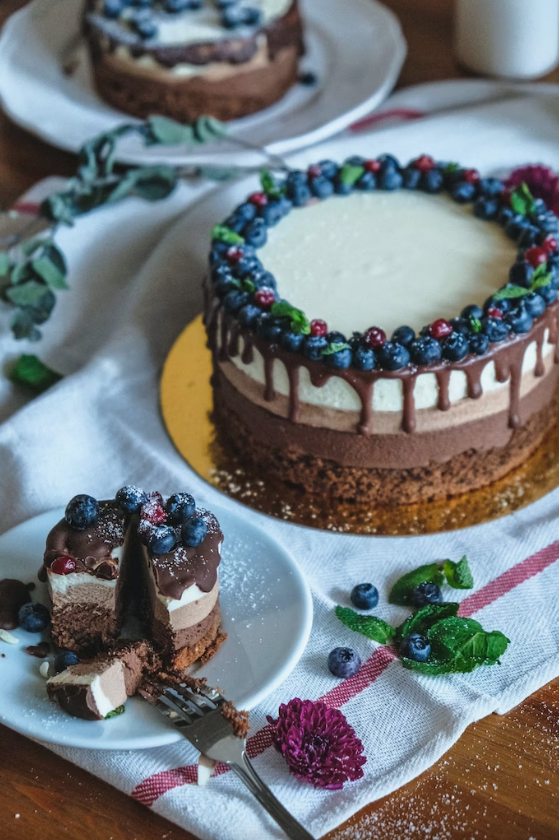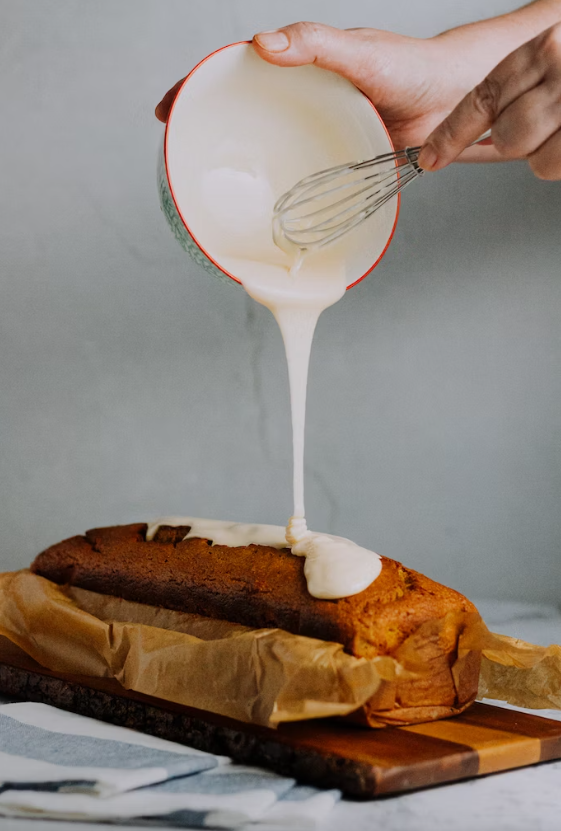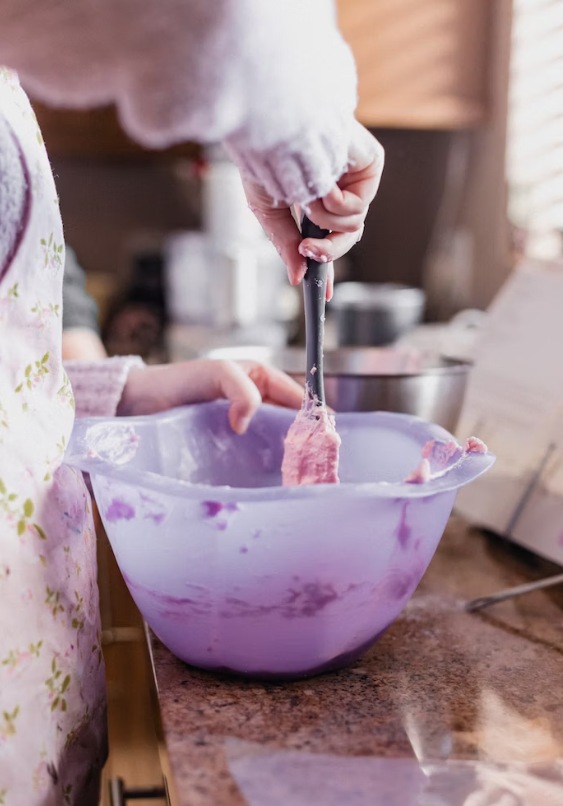As any baker knows, having the right tools and ingredients is essential for achieving successful and delicious baked goods!

From measuring cups to mixers, and from flour to sugar, the tools and ingredients you use can make all the difference in the taste and texture of your baked goods.
But with so many tools and ingredients on the market, it can be overwhelming to know where to start. That’s where this article comes in. We’ve compiled a comprehensive guide to the essential tools and ingredients that every baker should have in their kitchen. Whether you’re a beginner baker or a seasoned pro, this guide will help you stock your kitchen with the right items and take your baking to the next level.
In the following sections, we’ll cover everything from measuring tools to baking pans, and from flours to leavening agents. We’ll explain what each tool or ingredient is used for, how to choose the right one, and even offer some tips and tricks for using them effectively.
So, whether you’re looking to upgrade your current baking tools and ingredients, or you’re just starting out and need some guidance, keep reading for our essential baking bible. You won’t want to miss it!
Essential Tools
As a baker, having the right tools in your kitchen is crucial for creating perfect baked goods every time. Here are some essential tools that every baker should have:
- Measuring cups and spoons: Accurate measuring is key in baking. Invest in a set of high-quality measuring cups and spoons, and make sure to measure your ingredients carefully to ensure consistent results.
- Mixing bowls: Mixing bowls come in all shapes and sizes, but having a few different options is helpful for different baking tasks. Choose bowls that are sturdy and have a non-slip bottom to prevent spills.
- Stand mixer or hand mixer: A stand mixer or hand mixer makes mixing and whipping ingredients much easier than doing it by hand. Look for a mixer with a variety of speed options and attachments for different tasks.
- Baking sheets and pans: Baking sheets and pans come in a variety of shapes and sizes. Choose high-quality options that are sturdy and distribute heat evenly for optimal baking.
- Rolling pin: A rolling pin is essential for rolling out dough for pie crusts, cookies, and other baked goods. Look for a rolling pin with comfortable handles and a smooth surface for easy rolling.
- Pastry brush: A pastry brush is handy for brushing egg washes, butter, or glazes onto baked goods for a shiny and flavorful finish.
- Oven thermometer: Oven temperatures can vary widely, so it’s important to have an accurate thermometer to ensure your baked goods cook evenly.
When choosing your baking tools, look for high-quality options that will last. With these essential tools in your kitchen, you’ll be well on your way to baking success!

Essential Ingredients
Cooking everyday meals or an eccentric dish is sometimes not so different. When it comes to ingredients, you’ll notice how pearl couscous is not so different from a cupcake. Alright, that might be a bit of an exaggeration, but you can find a recipe for the former here: https://riceselect.com/product/riceselect-pearl-couscous. And we’ll teach you all you need for the latter in this section.
The ingredients you use in baking are just as important as the tools you use. Here are some essential ingredients that every baker should have in their kitchen:
- Flour: Flour is the foundation of most baked goods, providing structure and texture. All-purpose flour is a versatile option that works well in many recipes, but for more specialized recipes, like bread or cake, consider using bread flour or cake flour, respectively.
- Sugar: Sugar sweetens baked goods and helps them to brown. Granulated sugar is the most commonly used type, but other options include powdered sugar and brown sugar.
- Eggs: Eggs provide structure, texture, and moisture to baked goods. For best results, use large eggs at room temperature.
- Butter: Butter adds flavor and moisture to baked goods. Choose high-quality butter for the best results.
- Baking powder and baking soda: These two components are leavening agents that help baked goods rise. Baking powder is a combination of baking soda and an acid, while baking soda requires an acid to activate it. Make sure to check expiration dates on both to ensure they are still effective.
- Salt: Salt enhances the flavor of baked goods and helps balance sweetness.
As you may notice, these ingredients are not so different from the ones you use on a regular basis to cook any dish, so you’ll probably have it in your pantry.
Understanding how each ingredient functions in a recipe can help you make substitutions or adjustments if necessary.

Specialty Tools and Ingredients
While essential tools and ingredients are important, adding a few specialty items to your baking arsenal can take your skills and repertoire to the next level. Here are some less common tools and ingredients that every aspiring baker should consider:
- Pastry bags and tips: Pastry bags and tips are essential for creating intricate designs and decorations on baked goods. They come in various sizes and shapes, allowing you to create everything from fine lines to bold rosettes.
- Silicone baking mats: Silicone mats are a game-changer for baking, providing a non-stick surface for your baking sheets and preventing your baked goods from sticking or burning. They are also eco-friendly and can be reused many times.
- Specialty flours: Specialty flours, like almond flour or coconut flour, can add unique flavor and texture to your baked goods. They are also great for those with dietary restrictions, as they are often gluten-free or low-carb.
- Chocolate: High-quality chocolate can take your baked goods from average to extraordinary. Look for chocolate that is at least 60% cacao and made from cocoa butter for the best flavor and texture.
- Pastry cutter or bench scraper: A pastry cutter or bench scraper is a versatile tool that can be used for everything from cutting dough to scraping surfaces. They are especially useful when working with delicate or sticky doughs.
Tips for Baking Success
Now that you have the essential tools and ingredients, let’s talk about some tips and tricks for becoming a better baker. Follow these tips to avoid common mistakes:
- Select recipes carefully: Choose recipes that match your skill level and are well-suited to your equipment and ingredients. Don’t be afraid to challenge yourself, but don’t set yourself up for failure with overly complicated recipes.
- Measure accurately: Baking is a science, and accurate measurements are essential for success. Invest in a good quality set of measuring cups and spoons, and use a kitchen scale for precise measurements.
- Follow instructions carefully: Read the recipe thoroughly before beginning, and follow the instructions closely. Pay attention to details like preheating the oven, mixing times, and cooling times.
- Avoid common mistakes: Some common mistakes include overmixing the batter, using cold ingredients, opening the oven door too often, and overbaking. Take your time and follow the recipe to avoid these common pitfalls.
- Troubleshoot problems: If something goes wrong, don’t give up! Use your problem-solving skills to troubleshoot and fix the issue. For example, if your cake is sinking in the middle, it may be underbaked or your oven temperature may be too low.
- Practice and experiment: Like any skill, baking takes practice. Don’t be afraid to experiment with new techniques and ingredients, and don’t get discouraged if things don’t turn out perfectly the first time.
